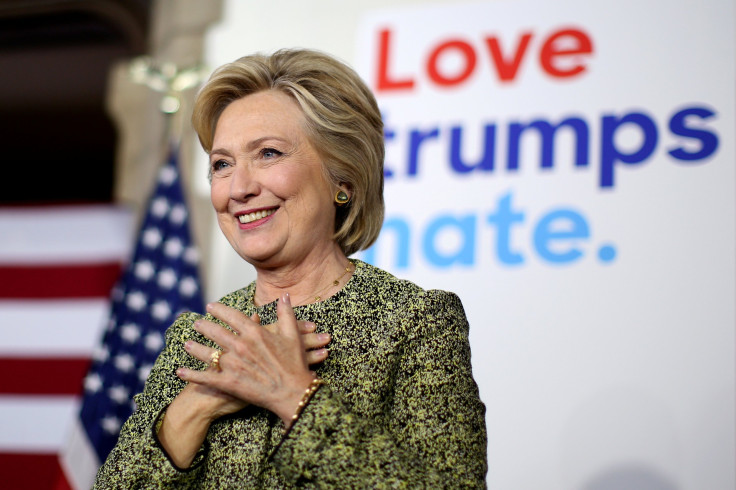Election 2016 Polls: Before First Presidential Debate, Where Do Donald Trump And Hillary Clinton Stand?

The first big presidential faceoff is nearly here. Democratic nominee Hillary Clinton and her Republican counterpart Donald Trump are scheduled to debate Monday night at Hofstra University in Hempstead, New York.
Ahead of the debate the race has continued to tighten, with Clinton's one-time large lead fading. She was up by just 1.3 percentage points nationally Tuesday, according to the Real Clear Politics average of polls. There has been some good news of late for the Democratic nominee, however. The most recent NBC News/Survey Monkey poll put her up by 5 points nationally, earning 50 percent to Trump's 45 percent support among likely voters. The weekly tracking poll conducted from Sept. 9 through Sept. 12 was the latest survey included in the Real Clear Politics average.
However, Trump had earned a 5-point lead in the most recent Los Angeles Times/USC tracking poll, a survey that has regularly shown a larger lead for the Republican nominee perhaps because of its unique methodology.
The projections from data-driven website FiveThirtyEight also show a tightening race ahead of the debate. According to their polls-only forecast, Clinton on Tuesday had a 58.5 percent chance of winning the election. Their polls-plus model, which includes economic and historical factors, gave Clinton a 57.5 percent chance at winning.
Elections often come down to the purple swing states — the ones that could go either red or blue — in which the polls are tightening, as well. Across 13 states included in the CBS battleground tracker, the two candidates were tied. Clinton appears to have a relatively tight grip over Pennsylvania, while Trump has the edge in Florida and Ohio, according to the FiveThirtyEight projections.
The debate will give voters a better chance to hear the candidates talk issues. The debate stage will be the first for Trump take won't be crowded by candidates, since the nominee emerged from a packed field in the Republican primaries. Both outsider candidates — Libertarian Gary Johnson and the Green Party's Jill Stein — came well short of reaching the 15 percent polling threshold required by the Commission on Presidential Debates to qualify for inclusion in the debate.
© Copyright IBTimes 2024. All rights reserved.






















